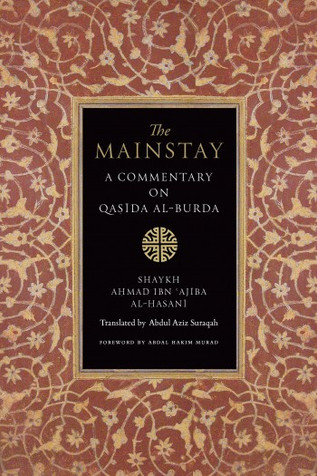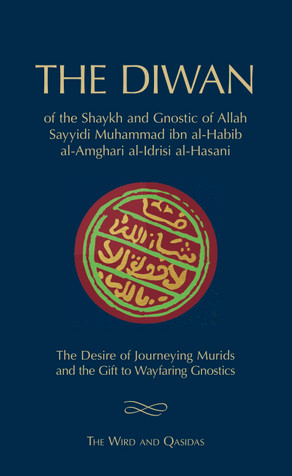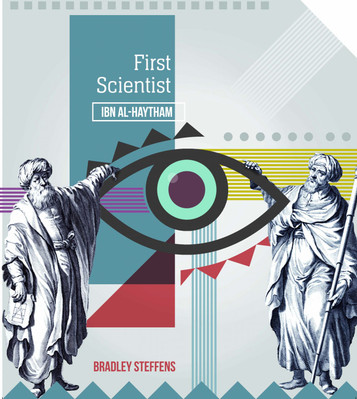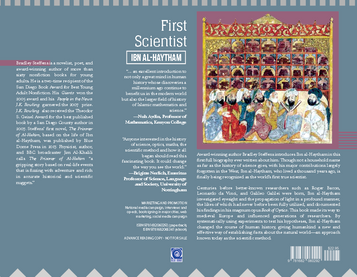Mainstay: A Commentary on Qasida al-Burda By Ibn Ajiba
Abu Zahra Press (UK)
- SKU:
- BKAZP1002
- MPN:
- 9780992806514
Title: Mainstay: A Commentary on Qasida al-Burda By Ibn Ajiba
Author: Imam Al-Busiri/Commentary By Shaykh Ahmad ibn 'Ajiba Al-Hasani/Translated by Abdul Aziz Suraqah/Foreword by Shaykh Abdal Hakim Murad
ISBN: 9780992806514
Publisher: Abu Zahra Press (UK)
Ever since its composition in the seventh Islamic century, by the poet, scholar and spiritual master Muhammad b. Saʿid al-Buṣiri, al-Kawakib al-durriyya fī madḥ Khayr al-Bariyya (‘The Celestial Lights in Praise of the Best of Creation’), more commonly known as the Burda, has been a mainstay of the Muslim choral tradition from East to West. It is the quintessence of devotional praise and expression of passionate love for the Prophet (Allah bless him and give him peace), for both the expert and layman. It adorns architecture throughout the Muslim lands and also found a place on the walls of the Prophet’s Mosque in Medina.
Dozens of commentaries and glosses on the poem have been written, by such luminaries as Ibn Ḥajar al-Haytami, ʿAli al-Qari, al-Bajuri and Shaykh-Zadah. This indicates its widespread acceptance within the mainstream Muslim scholarly tradition and unquestionably dispels the doubts that some have raised about the poem’s content. While a plethora of material exists in Arabic, Urdu and Persian, no complete commentary on the Burda has hitherto been written in or translated into English.
Inspired by this rich heritage of his predecessors, Shaykh Ibn ʿAjiba d.1224 AH [1809 CE] in al-ʿUmda fī Sharḥ al-Burda (‘The Mainstay: a Commentary on Qaṣida al-Burda’) beautifully elaborates on the poem taking the reader to the heart of the author. He comprehensively explains the meanings of each couplet and gleans beneficial spiritual lessons from it. For every reference in the Burda to events in the Prophet’s life, the author cites the primary texts that mention them and offers valuable details and enlightening clarifications of areas of possible confusion. It further offers the reader beautiful imagery and aesthetic refinement that perfectly complement al-Buṣiri’s ode.
About Qasidah Al-Burda (The Poem of the Scarf) of Imam Al-Busiri
Loving and praising the Messenger Muhammad [may Allah bless him and give him peace] is an essential cornerstone of every believer’s faith. This core facet of the faith has manifested itself in the form of beautiful poetic eulogy from his own time until today. For centuries, the Qasidah al-Burdah [The ode of the cloak] of al-Buṣiri (d. 696 AH) has been arguably the most popular eulogising ode of this kind. As such, it has been passed down ever since by successive and countless Muslim communities, by both layperson and authoritative scholar alike.
About Imam Al-Busiri
Hazrat Imam Salih Sharaf-ud-Deen Abu Abdullah Muhammad bin Hasan Al-Busiri had become paralysed. His doctors and physicians gave up all hope of his recovery. Eventually in this state of complete helplessness and despair he composed this poem expressing the grandeur and excellence of Sayyidina Rasulullah Sallallahu Alayhi Wasallam.
Using this as his sole means of asking Allah Ta'aala to cure him from his illness. He isolated himself in a quiet place one Thursday night and with complete devotion, concentration and sincerity began reciting this poem. While reciting it sleep overcame him. He had a vision of Prophet Muhammad (PBUH). He told Prophet of his illness whereupon the Prophet passed his blessed hand over Imaam Busiri's body. Through the barakah and blessing of Sayyidina Rasulullah (PBUH), Allah Ta'aala granted him complete cure from his paralysis. When he awoke he found a scarf or shawl on his body which he had seen the Prophet placed on his paralysed limbs in his dream.
This resulted in the poem being named "Qasidah Burdah" (The Poem of the Scarf).
About The Commentator
Ahmad bin Mhammad ibn 'Ajiba (1747–1809) was an 18th-century Moroccan saint in the Darqawa Sufi Islamic lineage. He was born of a Hasani sharif family in the Anjra tribe that ranges from Tangiers to Tetuan along the Mediterranean coast of Morocco. As a child he developed a love of knowledge, memorizing the Qur'an and studying subjects ranging from Classical Arabic grammar, religious ethics, poetry, Qur'anic recitation and tafsir.
When he reached the age of eighteen he left home and undertook the study of exoteric knowledge in Qasr al-Kabir under the supervision of Sidi Muhammad al-Susi al-Samlali. It was here that he was introduced to studies in the sciences, art, philosophy, law and Qur'anic exegesis in depth.
He went to Fes to study with Ibn Souda, Bennani, and El-Warzazi, and joined the new Darqawiyya in 1208 AH (1793), of which he was the representative in the northern part of the Jbala region. He spent his entire life in and around Tetuan, and died of the plague in 1224 AH (1809). He is the author of a considerable number of works and a Fahrasa which provides interesting information concerning the intellectual center that Tetuan had become by the beginning of the 19th century.
 US Dollar
US Dollar
















